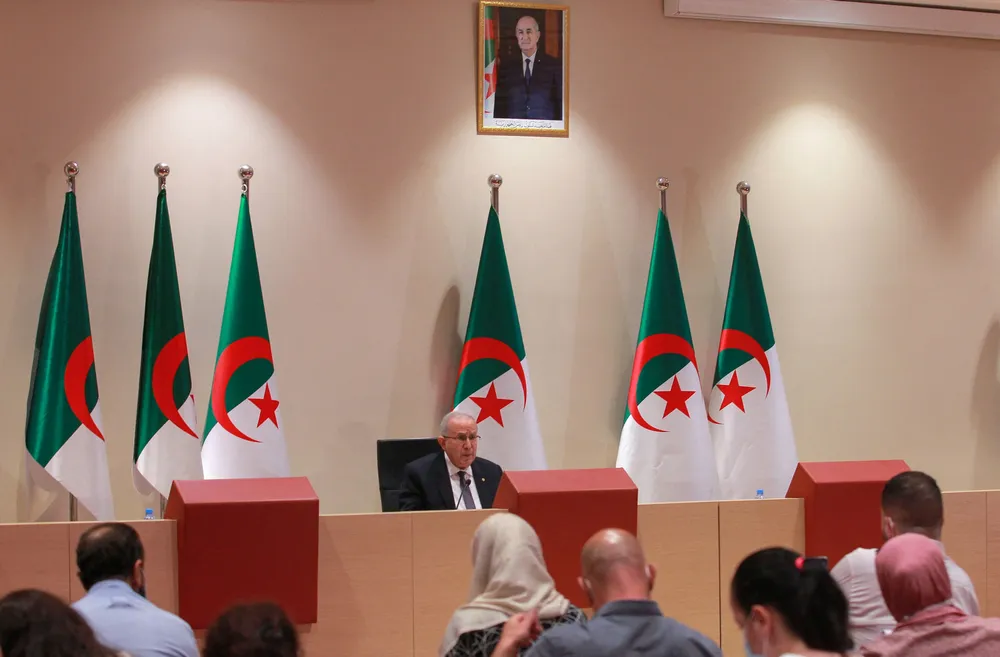Algeria pulls plug on Maghreb-Europe gas deal as relations with Morocco sour
Algiers says Medgaz pipeline will supply gas to Spain and Portugal, days after severing diplomatic ties with Rabat

Algeria will not renew a gas sales and transit deal with Morocco, just two days after ending diplomatic relations with Rabat, although the Algiers government has been at pains to point out this will not affect gas exports to Spain, which will now be routed through the MedGaz pipeline.
Algiers cut ties with Morocco on 24 August, accusing Rabat of “hostile actions” for backing Berber separatists in northern Algeria, an allegation that Morocco described as “absurd”.
The two North African neighbours have always had an uneasy relationship, mainly related to Algiers’ history of providing political, financial and military support for an independent Western Sahara — which its indigenous population calls the Sahrawi Arab Democratic Republic (SADR).
Morocco has long laid claim to Western Sahara, a former Spanish colony, and was delighted when the US administration of Donald Trump recognised this position last year, as part of the Abraham Accords.
However, Rabat’s sovereignty over the territory is still not recognised by either United Nations or the African Union, and certainly not by Algeria.
Algeria supplies gas to Morocco, Spain and Portugal via the Maghreb-Europe pipeline that traverses Morocco, before heading under the Straits of Gibraltar to a landfall on the Iberian peninsula.
This gas sales and transit deal covering the Maghreb line — which handles up to 11.5 billion cubic metres per annum of gas — is due to expire on 31 October.
There were rising fears that, given heightened recent tensions between Algiers and Rabat, if either party refused to renew the agreement, Spain would be forced to look elsewhere to secure energy supplies at a time of high prices in Europe for both liquefied natural gas and piped gas.
Initially, Morocco was threatening not to renew the deal due to Algeria’s continued support for an independent SADR and its armed Polisario Front.
However, it was Algeria that decided to call time on the Maghreb deal after accusing Morocco of supporting one of two insurgent groups it alleges started recent wildfires in the Kabylie region, east of the Algiers.
Algiers has designated the Islamist Rashad group and MAK, an autonomy movement for the Kabylie region, as terrorists.
The president's office said responsibility for the fires lies with Rashad and MAK, alleging the latter receives support from both Rabat.
In July, Algeria recalled its ambassador to Rabat after a Moroccan diplomat called for the Kabylie people to have a right of self-determination, mirroring Algiers’ position on the Western Sahara.
So, just days after severing diplomatic relations with Morocco, Algeria indirectly indicated it will not sign a new Maghreb-Europe gas deal.
Instead, it will supply gas to Iberia via the existing MedGaz pipeline which links Ben Safi in Algeria directly to Almeria in Spain across the Mediterranean Sea.
Route change
In a meeting in Algiers yesterday with Fernando Moran Calvo Sotillo, the Spanish ambassador, Algeria’s Energy Minister Mohamed Arkab said Spain’s gas would be provided “in future” via Medgaz which does not traverse Moroccan territory.
Arkab said the capacity of MedGaz — about 8 Bcm per annum — can be expanded to handle extra supplies that were otherwise have been routed through the Maghreb line.
A plan to boost the line’s capacity to 10 Bcm per annum was supposed to have been completed earlier this year but its status is not known.
A statement on the Ministry of Energy’s Facebook account, Arkab “affirmed Algeria's full commitment to cover all Spanish natural gas supplies through Medgaz”.
He also suggested Spain could be supplied with gas from Algeria’s Skikda LNG facility which restarted operations on 30 July.
Arkab also highlighted Algeria’s new oil, gas and energy legislation and invited Spanish companies to invest in the North African nation.
Commenting on the breakdown in diplomatic ties between the North African powerhouses, Zine Ghebouli, political analyst at the Washington Institute, said: “Despite the obviously heated pattern of relations between Algeria and Morocco, it is still unlikely this will lead to a military escalation. It is not in the interest of both countries.”
However, he stressed: “Algiers and Rabat will continue to aggressively seek regional supremacy.”
(Copyright)